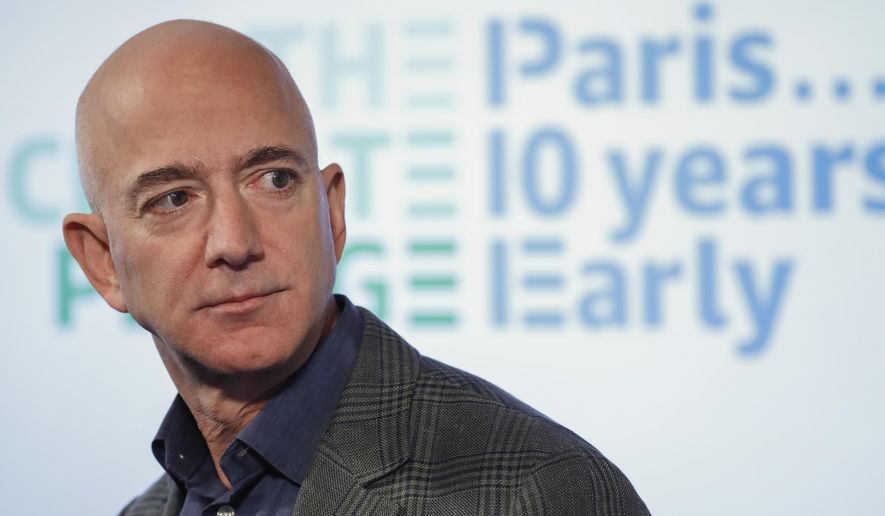NEW YORK (AP) - Jeff Bezos’ decision to step down as Amazon’s CEO, in part to devote more energy to his philanthropic work, appeared to reflect the multi-billionaire’s growing interest in charitable causes.
Last year, Bezos, 57, gave $10 billion – the largest single charitable donation of 2020, according to the Chronicle of Philanthropy – to establish the Bezos Earth Fund to fight climate change. He also supports the Bezos Day One Fund, which donated $106 million in 2020 to organizations that provide food and shelter to young families in need. In October, the Day One Fund opened the first Bezos Academy, a Montessori-inspired preschool geared for low-income families in Des Moines, Washington.
“I’ve never had more energy, and this isn’t about retiring,” Bezos wrote in a letter to Amazon employees Tuesday. “I’m super passionate about the impact I think these organizations can have.”
Bezos, whose personal wealth is estimated at $188 billion, has long been questioned about the relatively modest level of his charitable giving and his reluctance to sign The Giving Pledge. That was a commitment developed by Bill Gates and Warren Buffett to get the world’s wealthiest to donate more than half their worth to philanthropic organizations. Bezos is the only one of America’s five richest people not to have signed the pledge.
In 2017, Bezos tweeted a “ request for ideas,” outlining the philanthropy strategy he was considering. “I’m thinking I want much of my philanthropic activity to be helping people in the here and now - short term - at the intersection of urgent need and lasting impact,” he wrote.
His focus on logistics and the long term has made him seem deliberative in his charitable giving. After announcing the formation of the Bezos Earth Fund, for example, it took nine months before the first grants were issued. In November, the fund awarded $791 million in grants to 16 environmental groups, including the Environmental Defense Fund, the Natural Resources Defense Council, the Nature Conservancy, the World Resources Institute and the World Wildlife Fund, who received $100 million apiece.
Teri Behrens, executive director of the Johnson Center for Philanthropy at Grand Valley State University, said she has seen “promising signs that he is open to input, which is not something we have always seen from donors in the past.” Like much of the philanthropy world, Behrens said she plans to wait and see.
“He could make a significant impact depending on how he chooses to target his giving,” Behrens said.
“I will be looking for how he engages people affected by these issues. This is a lesson that the Gates family learned the hard way: Because you are an expert in running your business doesn’t mean that you’re an expert in solving social problems, whether it’s education or health or whatever. I would hope that he will look for ways to engage with people closer to the ground, people closer to the problems, so he can help them.”
___
The Associated Press receives support from the Lilly Endowment for coverage of philanthropy and nonprofits. The AP is solely responsible for all content.




Please read our comment policy before commenting.